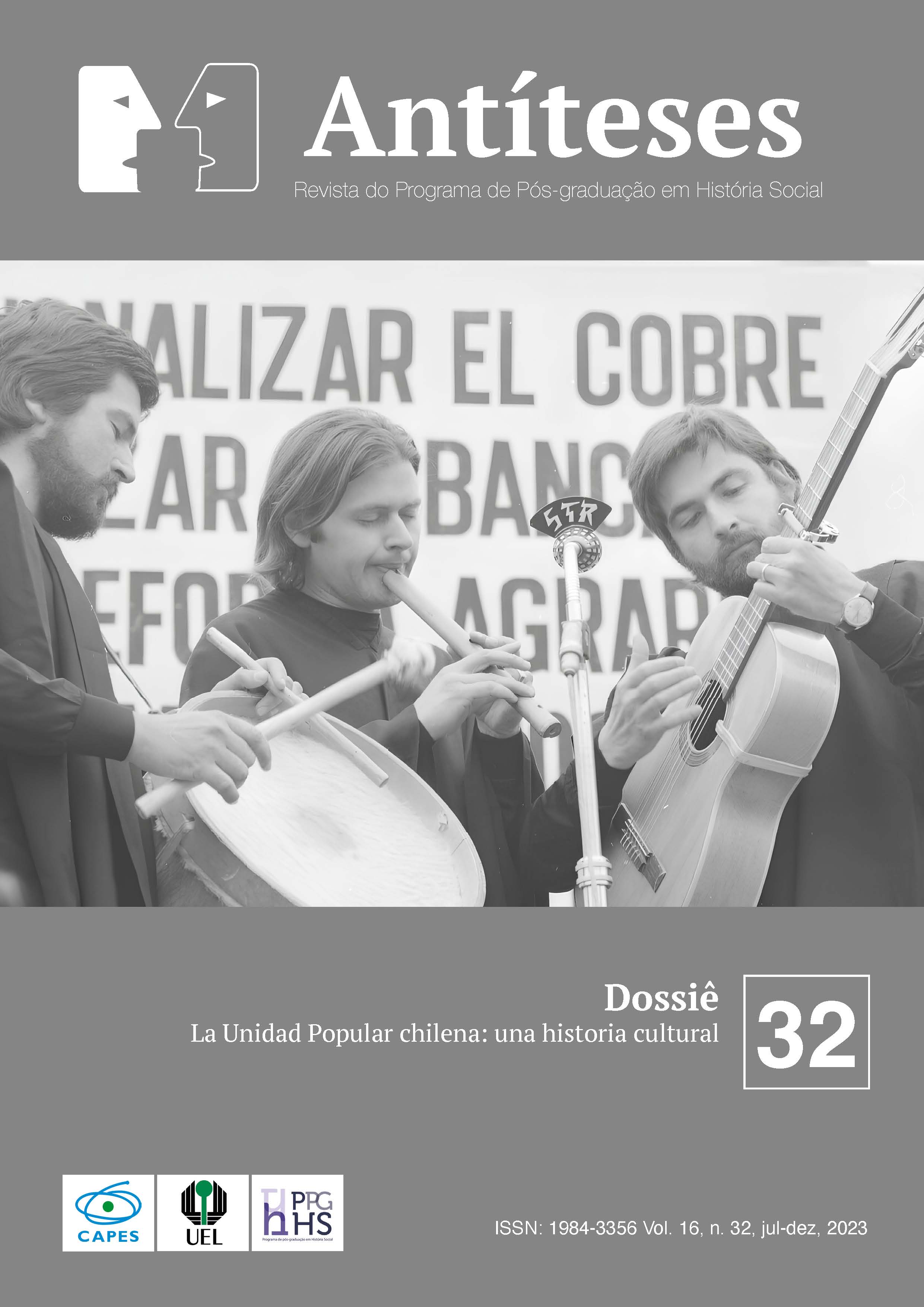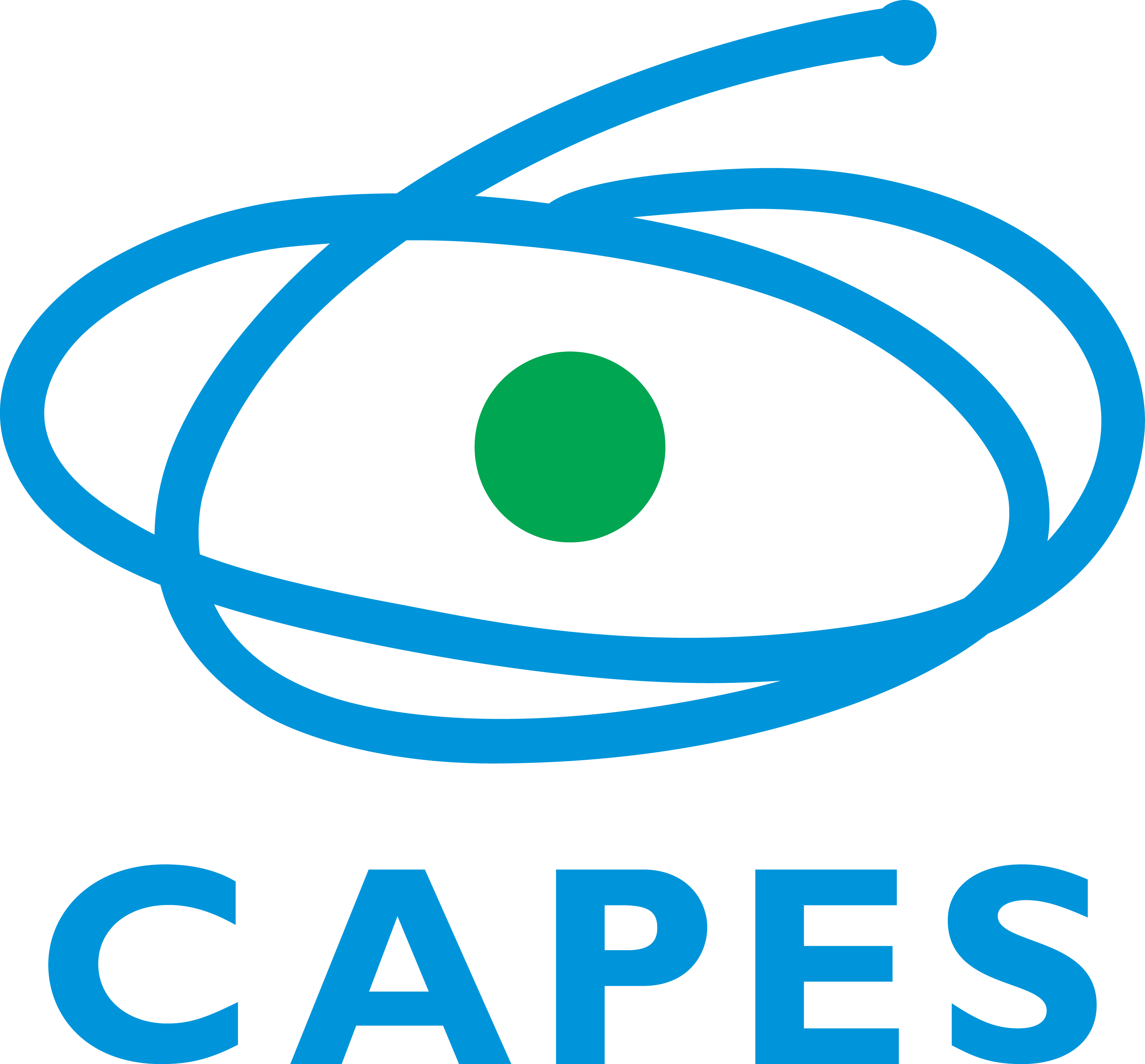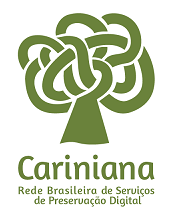María de la Luz Uribe and Charo Cofré:
towards na aesthetics of dissent in children’s chilean poetry during the seventies
DOI:
https://doi.org/10.5433/1984-3356.2023v16n32p034-058Keywords:
children poetry, aesthetics of dissent, chilean dictatorship, memory, fantasyAbstract
This study is situated within the realm of literary studies, specifically examining the poetic works created for children in Chile during the 1970s. The primary objective is to explore the potentialities of poetic language in actively positioning itself within the specific contexts of its production and circulation. For this purpose, we delve into the work of Chilean creators María de la Luz Uribe and Charo Cofré, who collaborated during this period through poetry, music, and visual art (the latter, thanks to the significant contribution of illustrator Fernando Krahn), which materialized in the publication of the album "Tolín, tolín, tolán" (1972). Considered an unprecedented milestone in the history of Chilean children”s music, this production has been recently revisited through the heritage preservation efforts of the Chilean label Monophone, which reissued the album in 2022 to commemorate its fifty years since publication. Therefore, through a critical analysis of selected sung poems from the work, this study delves into the intricacies of traumatic memory and reviews the trajectories of poetic creation for children during the Chilean dictatorship period, characterized by the articulation of transformative imaginaries about childhood and the assertion of its political nature through aesthetics of dissent that combine the fantastic, the subversive, and the neo-subversive, establishing a significant dialogue with new generations.
Downloads
References
¿EN DÓNDE tejemos la ronda?. Interprete: Charo Cofré. Compuesto: Charo Cofré y Gabriela Mistral. In: ¿EN DÓNDE tejemos la ronda?: poemas de Gabriela Mistral. Interprete: Charo Cofré. Columbia: CBS, 1985. 1 cassette.
AGUILERA, Claudio; MOLINA, Isabel. Colección Cuncuna: La revolución del libro infantil chileno. Santiago: Editorial USACH, 2022.
ANDRUETTO, María Teresa. Resistencia. Buenos Aires: Asociación de Literatura Infantil y Juvenil de la Argentina, 2018.
BENJAMIN, Walter. La obra de arte en la época de su reproductibilidad técnica: Discursos interrumpidos I. Madrid: Taurus, 1989.
BIANCHI, Soledad. Notas de discos. Araucaria de Chile, [s. l.], v. 13, p. 210-217, 1981.
BUITRAGO, Jairo; BLANCO PANTOJA, Daniel. Un diamante en el fondo de la tierra. Santiago de Chile: Amanuta, 2014.
CARRASCO, Karina. Unidad Popular durante la Guerra Fría: una aproximación desde la experiencia de la Nueva Canción Chilena. Confluenze. Rivista Di Studi Iberoamericani, Bologna, v. 14, n. 1, p. 487-516, 2022.
CASTILLO, Patricia; GONZÁLEZ, Alejandra. Infancia, dictadura y resistencia: hijos e hijas de la izquierda chilena (1973-1989). Revista Latinoamericana de Ciencias Sociales, Niñez y Juventud, Colombia, v. 13, n. 2, p. 907-921, 2015.
CHARO Cofré. Intérprete e compuesto: Charo Cofré. Santiago de Chile: Peña de los Parra, 1971. 1 LP.
CHILE. Comisión Nacional de Verdad y Reconciliación. Informe de la Comisión Nacional de Verdad y Reconciliación. Santiago: Gobierno de Chile, 1991.
CRUZ, Nicolás; PALOMO, Quique. El golpe. Santiago de Chile: Pehuén, 2014.
DE MAN, Paul. La ideología estética. Madrid: Cátedra, 1998.
DUARTE, Claudio. Sociedades adultocéntricas: sobre sus orígenes y reproducción. Última Década, Santiago, v. 20, n. 36, p. 99-125, 2012. DOI: https://doi.org/10.4067/S0718-22362012000100005
FERRADA, María José. Niños. Santiago de Chile: Grafito Ediciones, 2013.
GAITÁN, Lourdes. Sociología de la infancia. Buenos Aires: Síntesis, 2006.
GARCÍA GONZÁLEZ, Macarena. Enseñando a sentir: Repertorios éticos en la ficción infantil. Santiago de Chile: Ediciones Metales Pesados, 2021. DOI: https://doi.org/10.2307/j.ctv1n1brwr
GARCÍA GONZÁLEZ, Macarena. Narrando la dictadura a la infancia. Imágenes que trafican significados. Catedral tomada, Pittsburgh, v. 5, n. 9, p. 84-108, 2017. DOI: https://doi.org/10.5195/ct/2017.243
GONZÁLEZ, María José. Literatura infantil chilena y dictadura: ¿un silencio elocuente? Revista Había una vez, Santiago de Chile, n. 17, p. 31-37, 2014.
GUAJARDO, Marcelo. La bicicleta mágica de Sergio Krumm. Santiago de Chile: SM, 2013.
GUERRERO GUADARRAMA, Laura. La neo-subversión en la literatura infantil y juvenil, ecos de la posmodernidad. Ocnos, Cuenca, v. 4, p. 35-56, 2008. DOI: https://doi.org/10.18239/ocnos_2008.04.03
GUERRERO GUADARRAMA, Laura. Neosubversión en la LIJ contemporánea: Una aproximación a México y España. México: Universidad Iberoamericana, 2016.
HIRSCH, Marianne. La generación de la posmemoria. Escritura y cultura visual después del Holocausto. Madrid: Carpe Noctem, 2015.
HUYSSEN, Andreas. En busca del futuro perdido: Cultura y memoria en tiempos de la globalización. México: FCE: Instituto Goethe, 2002.
LURIE, Alison. No se lo cuentes a los mayores: literatura infantil, espacio subversivo. Salamanca: Fundación Germán Sanchéz Ruipérez, 1989.
MARTÍNEZ, Carola. Matilde. Buenos Aires: Norma, 2016.
MONTEALEGRE, Jorge. Sobre el amarillo y otros colores. El Mostrador, Santiago, 14 jul. 2022. Disponible en: https://www.elmostrador.cl/cultura/2022/07/14/sobre-el-amarillo-y-otros-colores/. Acesso em: 15 fev. 2023.
MUÑOZ-CHEREAU, Bernardita. Representations of dictatorship in contemporary Chilean children’’s literature. Children”s Literature in Education, [s. l.], v. 49, n. 3, p. 233-245, 2018. DOI: https://doi.org/10.1007/s10583-016-9297-z
NOFAL, Rossana. Literatura para chicos y memorias: colección de lecturas. In: JELIN, Elizabeth; KAUFMAN, Susana (ed.). Subjetividad y figuras de la memoria.. Buenos Aires: Siglo XXI, 2006. p. 111-129.
OCAMPO, Denise. Literatura infantil y juvenil antiautoritaria en América Latina. Contrastes entre la literatura y la escuela al representar la realidad. Literatura: Teoría, historia, crítica, Bogotá, v. 23, n. 2, p. 167-191, 2021. DOI: https://doi.org/10.15446/lthc.v23n2.94886
RANCIÈRE, Jacques. El espectador emancipado. Buenos Aires: Manantial, 2010.
REYES, Carlos; ELGUETA, Rodrigo. Los años de Allende. Santiago de Chile: Hueders, 2015.
RITOQUE FM: entrevista sobre la reedición del disco Tolín, tolín, tolán de la gran Charo Cofré. Entrevistado: Juan Pablo Bastidas. Entrevistador: Óscar Rosales. Valparaíso: Ritoque FM, 15 nov. 2022. Podcast. Disponible em: https://ritoquefm.cl/podcast-entrevista-sobre-la-reedicion-del-disco-tolin-tolin-tolan-de-la-gran-charo-cofre/. Acesso em: 15 fev. 2023.
SHKLOVSKI, Víctor. El arte como artificio. In: TODOROV, Tzvetan (comp.). Teoría de la literatura de los formalistas rusos. México: Siglo XXI, 1991. p. 55-70.
SOLO digo compañeros. Interpretes e compuesto: Charo Cofré y Hugo Arévalo. Milán: I Dischi Dello Zodiaco, 1975. 1 LP.
TIKITIKLIP: Con elenco artesanal. Dirección de Alejandra Egaña y Paz Puga. Santiago de Chile: Ojitos Producciones, 2005. Videoclips.
TOLÍN, tolín, tolán. Compuesto: Charo Cofré y María de la Luz Uribe. Santiago de Chile: IRT, 1972. 1 LP.
TOLÍN, tolín, tolán. Compuesto: Charo Cofré y María de la Luz Uribe. Santiago de Chile: Monophone Records, 2022. 1 LP.
URIBE, María de la Luz. El viaje. Madrid: SM, 1995.
URIBE, María de la Luz. Cosas y Cositas. Madrid: Espasa Calpe, 1987.
URIBE, María de la Luz. Cuenta que te cuento. Barcelona: Juventud, 1979.
URIBE, María de la Luz. La Doña Piñones. Santiago de Chile: Quimantú, 1973.
VESELY, Carola; JEFTANOVIC, Andrea. Los reinos de la infancia: imaginarios del poder dictatorial en la poesía chilena para niños durante los años setenta. Literatura: Teoría, historia, crítica, Bogotá, v. 23, n. 2, p. 19-46, 2021. Disponible em: https://doi.org/10.15446/lthc.v23n2.94881. Acesso em: 2 fev. 2023 DOI: https://doi.org/10.15446/lthc.v23n2.94881
Downloads
Published
How to Cite
Issue
Section
License
Copyright (c) 2024 Carola Vesely, Andrea Jeftanovic Avdaloff

This work is licensed under a Creative Commons Attribution 4.0 International License.
The journal reserves the copyright on the contributions published, without material compensation for the author, and may make them available online in Open Access mode, through its own system or other databases; you can also make normative, orthographic and grammatical changes in the originals, in order to maintain the cultured standard of the language, with the final consent of the authors. The opinions expressed by the authors are their sole responsibility.Funding data
-
Universidad de Santiago de Chile
Grant numbers POSTDOC_DICYT Código 031951JA_POSDOC










